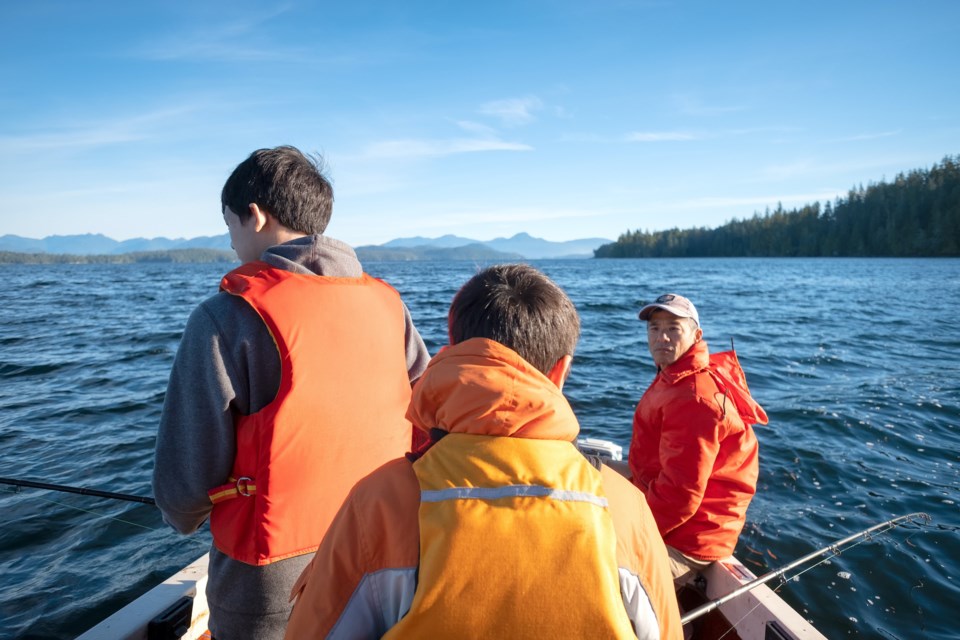The plan is never to head out on the water for the day and drown.
But that is what happens more often than most casual boaters would like to acknowledge.
And most fatalities on the water are preventable.
More than 80% of drowning victims in Canada weren't wearing a flotation device, according to the 2019 Canadian Drowning Report from the Lifesaving Society.
In more than 40% of boating fatalities, alcohol was a factor.
Close to 80% of drowning casualties were male.
94% of 15 to 19-year-olds who drowned were not wearing lifejackets.
More boaters out on the water
During the pandemic, boating as a pastime has exploded, according to Bruce Hayne, executive director of Boating BC Association.
Transport Canada reports that between 2020 and 2021, there was a 70% increase in the number of people who had applied and earned their Pleasure Craft Operator Cards (PCOC), Hayne said.
"Not all those people are going to translate to buying a boat, but many will. And so we see a lot more people on the water now than we ever have. And the demand for buying boats has just increased tremendously," Hayne told The Squamish Chief.
Boating BC is launching a campaign to educate new boaters and remind experienced boaters never to forget to practise boating safety.
It all comes down to preparedness when people go out on the boat, Hayne said.
"Along with just the operation of a boat, how to dock it properly, how to launch it properly — just the mechanics of operating a vessel — some may not be as aware or as tuned into just being prepared to be on the water and being prepared for the worst case scenario," he said. "First and foremost, it is about life jackets. And not just having life jackets but wearing them."
Hayne acknowledged that the message of wearing a lifejacket is not new. In fact, it has likely become white noise for many.
Some think they are strong enough swimmers that they don't need to wear them.
Others feel that floatation devices are bulky and uncomfortable.
Others just don't feel they are "cool."
That is why the campaign Boating BC is involved with is called, "Excuses don't float.”
"Everybody has an excuse for doing things or not doing things that can lead to disaster," Hayne said, noting that lifejackets are much more comfortable and light these days than they were years ago.
"The statistics show that a very high percentage of drowning deaths occur with men my age who are out with their buddies in a 12 or 14-foot aluminum [boat] fishing and having a few beers. Somebody stands up to relieve themselves off the transom, and they fall in, and they drown. And cold water, of course, is another serious concern. And ocean water like in Howe Sound or anywhere particularly this time of year — that water is not warm, and you can be a very, very strong swimmer, but that can just suck the energy out of you [quick]."
There are a lot of other hazards on Howe Sound, too, including wind gusts that can take some by surprise, and there are “ little tiny rock islands where you wouldn't expect them," Hayne added.
Boat sober
Folks also need to be boating sober, Hayne stressed.
"A few beers or a couple of tokes and you know all of a sudden your senses and everything are just not where they need to be."
Sometimes, boaters get into trouble but wait to call for help out of ego or fear when calling sooner could save time and lives.
"There's absolutely no shame whatsoever in asking for help," Hayne said. "It's maritime law that if you see somebody in distress while you're in a boat that you must stop and help them...Royal Canadian Marine Search and Rescue have stations all over the province, particularly on the coast, that is [run by] volunteers."
The Coast Guard and RCMP are a phone call away, too, he said.
"There's lots of help that is available and people just need to realize that that help is available and they should ask for it."
Having proper safety equipment onboard is an obvious but sometimes overlooked element of boating, he said.
"Not just the minimum safety equipment [required] by law but to have you know the safety equipment that you really need on a boat whether that's a VHF radio and things like that so that you can call if you're in trouble."
He recommends that in addition to the required boat safety course, locals take other training.
"Power Squadron and others offer courses and navigation and other types of courses," he noted.
While a boater himself growing up on lakes in Ontario, when he came to B.C. 30 years ago, he realized boating in the ocean is another thing, so it is important to understand the risks and hazards where you are heading out.
"There's tides, there's ferries, there's tugs and barges — it's a whole different game, and you should take a more advanced boating course, particularly if you're going to go in ocean waters."
Hayne also noted that with all the folks heading out on the water, or wanting to, Boating BC is working with municipalities to advocate for increasing public access to water with public boat launches.
"Many municipalities are lured into perhaps selling off waterfront or rezoning waterfront for condo development and that type of thing because there's good tax revenue there. But public access to our shared waterways is really important. And it's really important as well, for economic development in the economy of communities."
National Safe Boating Week in Canada sails from May 21 to 27.
Find out more by going to BC Boating.




